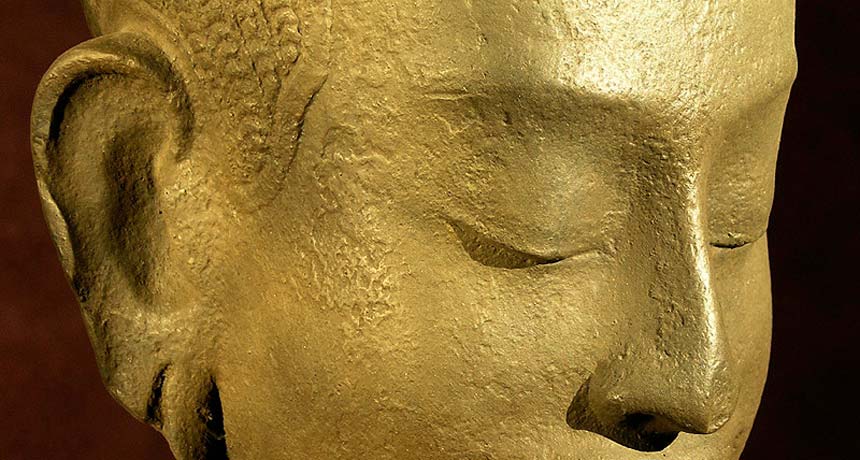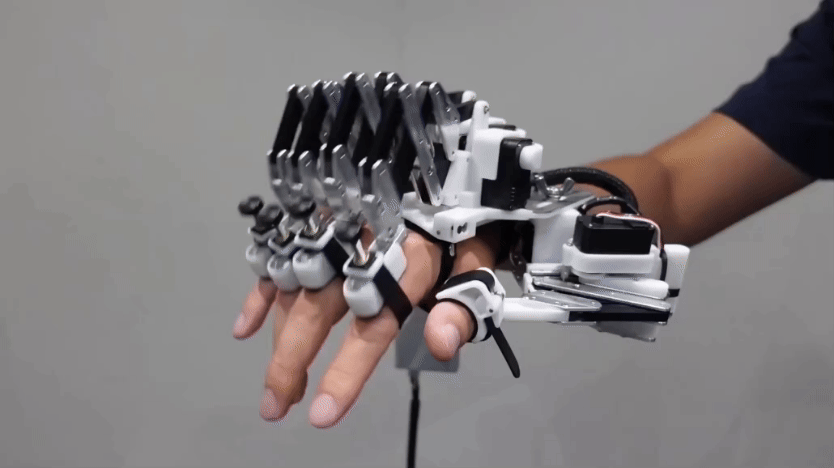Choosing shocks over contemplation
People do surprising things to avoid being alone with their thoughts

This statue shows Buddha, founder of the Buddhism religion, in deep concentration. Unlike Buddha, most people prefer not to be alone with their thoughts, a new study finds.
Eric Pouhier
Some people really don’t like to be alone with their thoughts. Indeed, people taking part in one new study chose to receive an electric shock rather than spend 15 minutes alone in a room with nothing to do.
“The human mind wants to engage with the world, even, it appears, if that involves pain,” Timothy Wilson concludes. A psychologist, he works at the University of Virginia in Charlottesville.
The brains of mammals evolved, or changed slowly over generations, to watch for dangers and opportunities. Only humans evolved the ability to think about thinking, he says. Still, people can become uncomfortable controlling their own thoughts, Wilson says. They may not be able to steer those thoughts in a pleasing or comforting direction. And that may help explain the popularity of meditation. It’s a process by which people learn to control their thoughts and benefit from quiet contemplation.
For its new study, Wilson’s group recruited 146 college students. The researchers asked each student to sit alone in a room at their lab without any devices, such as cell phones. This solitude lasted for 6 to 15 minutes. Most participants said they not only had trouble concentrating but also found the experience unpleasant.
The researchers then asked 44 of these people to sit alone at home, too. Again, the students had about the same reaction as they had in the lab. They found the experience very uncomfortable. About one-third also reported they had cheated. They listened to music or read instead of just thinking in silence.
Finally, the scientists recruited 66 adults between the ages of 18 and 77 at a farmer’s market or church. Each recruit took the same test of contemplation. And like the students, these people reported finding it unpleasant to sit at home alone with their thoughts.
But here’s the shocker — quite literally. The scientists asked 18 men and 24 women to sit quietly and just think about anything. Their quiet, alone time lasted a full 15 minutes. But for this experiment, the participants could give themselves a painful electric shock if they wished. That shock, though, would not make their participation in the experiment end any earlier. Still, 12 men and six women chose to receive a shock, rather than just continue to sit in peace.
Psychologist Jonathan Schooler of the University of California, Santa Barbara, did not work on the new study. He says its findings point to how many people find it unpleasant to reflect on issues by themselves. They’d rather feel pain than endure quiet time alone.
Power Words
evolve To change gradually over generations, or a long period of time. In living organisms, the evolution usually involves random changes to genes that will then be passed along to an individual’s offspring. These can lead to new traits, such as altered coloration, new susceptibility to disease or protection from it, or different shaped features (such as legs, antennae, toes or internal organs).
contemplation The act of thinking silently and deeply for a long while.
mammal A warm-blooded animal distinguished by the possession of hair or fur, the secretion of milk by females for feeding the young, and (typically) the bearing of live young.
meditate To think deeply or focus one’s mind for a period of time, in silence or with the aid of chanting. Sometimes it’s done for religious or spiritual purposes. It also can become a method of relaxation.
psychology The study of the human mind, especially in relation to actions and behavior. Scientists and mental-health professionals who work in this field are known as psychologists.
recruit (in research)New member of a group or human trial, or to enroll a new member into a research trial. Some may receive money or other compensation for their participation, particularly if they enter the trial healthy.







